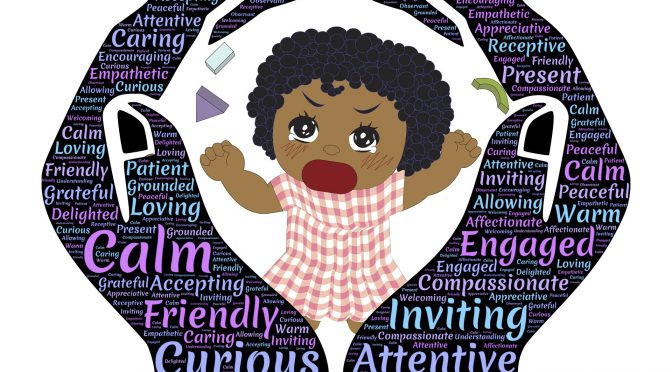By Shoshana Hayman, director of Life Center, The Israel Center for Attachment Parenting, www.lifecenter.org.il
The rain poured down relentlessly, with winds blowing so hard that trees were being pulled from their roots and blown over. My husband watched from our window, paying close attention to the row of young fruit trees that we had planted the previous summer. As the wind whipped the mango tree, pulling its branches sideways, my husband put on his coat, found some heavy rope, and headed out into the rain to secure the trees by tying their trunks to the adjacent fence. When he came back into the house, wet and cold from the rain, I half-jokingly told him he was a good “tree daddy.”
The idea of “tree daddy” popped into my mind as I thought about how he had protected those young, tender fruit trees. He had planted them so lovingly in the summertime, and it remained in his consciousness to keep an eye on them to make sure they had the best chance possible to grow into big, strong trees that would bear sweet fruit one day in the future. He does not have to constantly push and pull at the branches of the trees to make them grow; he does not have to give them commands how to grow. He believes the fruit will some day come, and he simply has to make the sure that the trees have the right conditions for growth and protection from anything that could hurt them.
As parents, this is what we provide for our children. We believe in their potential for growth. Deep inside them are the seeds for becoming truly mature. They will develop the flexibility and resilience needed to withstand the harshness of the world. They have the capacity for being considerate and caring towards others while feeling secure in their own values. Their own aspirations and goals in life will take shape over time, together with the courage and resourcefulness needed to realize these goals. They can become responsible and self-directed so that they can create a life of meaning and fulfillment for themselves.
When we believe this to be true, we have but to protect this development. Just as the “tree daddy” keeps it in his consciousness to watch over the trees so they will be safe and protected, so too, we need to protect and shield our children from too much vulnerability until they can hold on to themselves in the world. We don’t need to push and pull at our children’s growth. Each child will develop in his own time at his own rate, and little by little we will see the fruits of this growth—the fine human character traits that we long to see in them.
What must be protected and shielded in our children is their hearts. Children are the most sensitive and vulnerable of all creatures. In order to not only survive in the world but also to truly blossom and flourish, children need soft hearts. They need their emotions to move them towards caring, consideration, caution and carefulness. Without these emotions, children lose the feelings and perceptions needed for their development as human beings. They fail to become adaptive and able to overcome adversity. They lose their sense of self and purpose in life and along with this their capacity to feel fulfillment. Life is seen through their eyes as being black and white, as they cannot see the dissonance in life and the many dimensions that color and characterize the events in our lives. Continue reading The “Tree Daddy”: A Parenting Metaphor →









